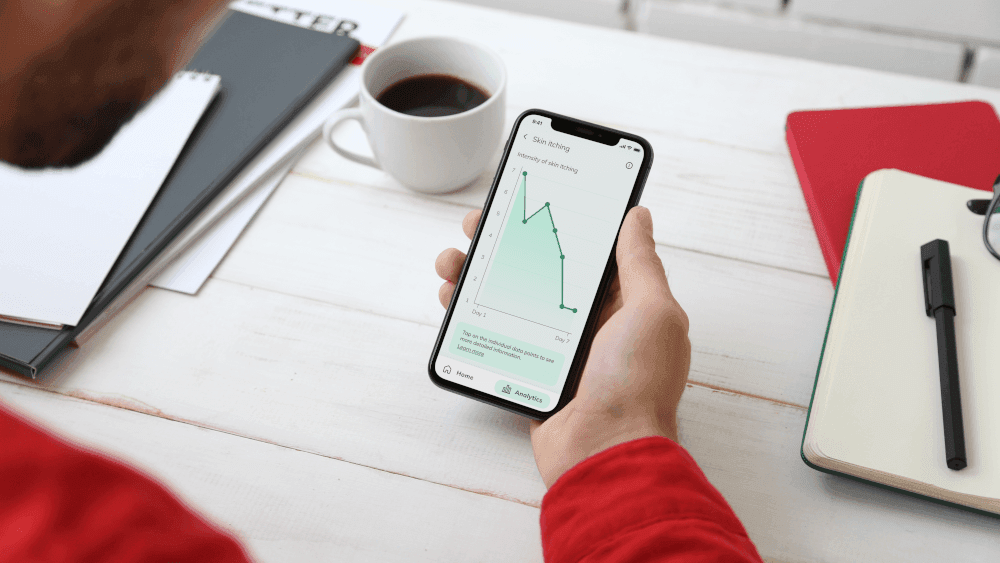3 Ways to Improve Patients’ Quality of Life with Real-World Data (RWD)

DATE
April 20, 2023
AUTHOR
Catherine | Associate Director Marketing
Health data is becoming increasingly important for medical progress and is an indispensable part of modern clinical research. Real-world data (RWD) can make a significant contribution to improving healthcare, from prevention to aftercare. Through processing RWD appropriately, they can be used as a basis for increasing the evidence in clinical trials and accelerating the development of new drugs and medical products. Connecting data sets makes it possible to identify patterns that can then be used for research in the first place, but also for individual treatment decisions.
The added value of RWD has already been recognized in Europe and Germany, but there is still a need to catch up in terms of data protection and technical implementation. In addition to the efficient use of RWD for healthcare and medical research, the question also arises as to the impact of RWD on the quality of life (QoL) of patients. How can this data help to improve health status, shorten the duration of illness or reduce side effects of therapeutic measures and medications? This article shows three ways to benefit from patient-generated RWD while improving the QoL of those with diseases.
Think Global, Act Local: Best Practices for Holistic Real-World Evidence
Webinar: On May 9 we had a virtual fireside chat with Boehringer Ingelheim which was all about Real-World Evidence in clinical trials. In our webinar recording you can learn more about the following topics:
- How to strategically think about RWE generation globally and locally
- How to generate evidence in a holistic way
- Best practices in the field of RWE from Boehringer Ingelheim

This is how you and your patients benefit from RWD:
1) Improve prevention and early detection by documenting harmful habits
2) Accelerate diagnosis and therapy with RWD
3) Replace control groups in clinical trials
1) Improve prevention and early detection by documenting harmful habits
Ideally, diseases should not arise in the first place. To achieve this, however, it is necessary for citizens to recognize healthcare risks and avoid harmful habits (such as smoking) at the right time. Information is both an important basis and an incentive: If it is provided in the form of RWD, patients get to know themselves better and at the same time provide valuable data that can be crucial for prevention and therapy. Documenting habits that have an impact on one’s health is also easy to incorporate into everyday life. A positive side effect: Trust in medical research and care is increased.
Digital tools should be increasingly used to enable patients to provide feedback to researchers without major obstacles. For example, digital diaries can be used to document eating habits, symptom progression or medication intake without the need to visit a clinical site for a survey. At the same time, doctors have direct access and can independently select the data they need. Wearables, on the other hand, can document important parameters such as blood glucose without patients having to take action themselves. Medical apps for mobile devices make everyday life easier by providing valuable information on nutrition or helping with medication dosage.
2) Accelerate diagnosis and therapy with RWD
An expanded pool of data, which in addition to medical parameters also includes aspects of lifestyle and habits, improves therapy planning in the long term. In this way, the focus is not only on the disease and its typical course. The patient’s needs are also taken into account. Thus, initially unspecific data can be used to tailor specific and individual therapies to those affected. This not only improves the patient’s quality of life (QoL) during the course of treatment, but also accelerates the entire healing process.
If RWD is increasingly used in prevention and early screening, it can be continuously enriched with data from medical care. This means that abnormalities can be detected at a very early stage, so that the first specific examinations can be carried out much earlier and ideally before the onset of the disease. This can save important time that is lost, for example, when early indicators of cancer are overlooked. In addition, RWD helps to enable optimized monitoring of the course of the study. As a result, therapy adjustments can be made in a timely manner and better treatment adherence or adherence can be achieved. At the same time, the quality of life of those affected is improved, for example through better coordinated treatment.
Climedo Connect: Bridging the Gap between Clinical Research and Real-World Evidence
Dr. Ralph Markus Wirtz (Stratifyer) offered some exclusive insights into adaptive trials designs and how to effectively use Real-World Evidence (RWE) in one of our latest webinars.

3) Replace control groups in clinical trials with RWD
In traditional clinical trials, patients are divided into treatment arms, one receiving the new drug and a control group receiving either the standard treatment or a placebo. However, especially in the case of very severe and life-threatening diseases, it is ethically and legally problematic to assign patients to a control group, so that they have no chance of receiving a potentially life-saving treatment. Control groups can easily be replaced by RWD, so that all patients have the same chance of being cured right from the start. Statistical methods are used to match RWD data sets with clinical trial patients, making it easier to draw conclusions about similar disease progression.
In addition, the supportive use of artificial intelligence (AI) is worthwhile: Special algorithms can help to detect deviations from the norm, which means that patients can be informed of risks in good time before the start of a clinical trial or treatment. In addition, RWD and AI-supported evaluation can identify specific risk groups, so that an outbreak of disease can be counteracted at an early stage and the quality of life can be improved by specific treatment paths.
Conclusion: Using RWD as a basis for individualized and optimized treatment methods to improve QoL
Comprehensive health data collected during prevention can provide research with important findings at an early stage and thus accelerate the development of applications and therapies. On the other hand, digital diaries or wearables can help patients make self-determined decisions, which increases adherence to treatment as well as quality of life.
Although the added value of RWD and holistic RWE is already known in Germany, its use is still limited. However, with the introduction of the electronic health record (EHR) and digital health applications, as well as the nationwide roll-out of the telematics infrastructure, this situation will change in Germany in the coming years. Another barrier that needs to be overcome for the widespread use of such data relates to data protection. A uniform national legal framework for the use of patient data in the context of scientific purposes must be created, and data protection measures must be taken for the collection and evaluation tools used.
Would you also like to use RWD for your clinical research and benefit from the advantages of digital solutions? Feel free to reach out to us and schedule your personal software demo.






